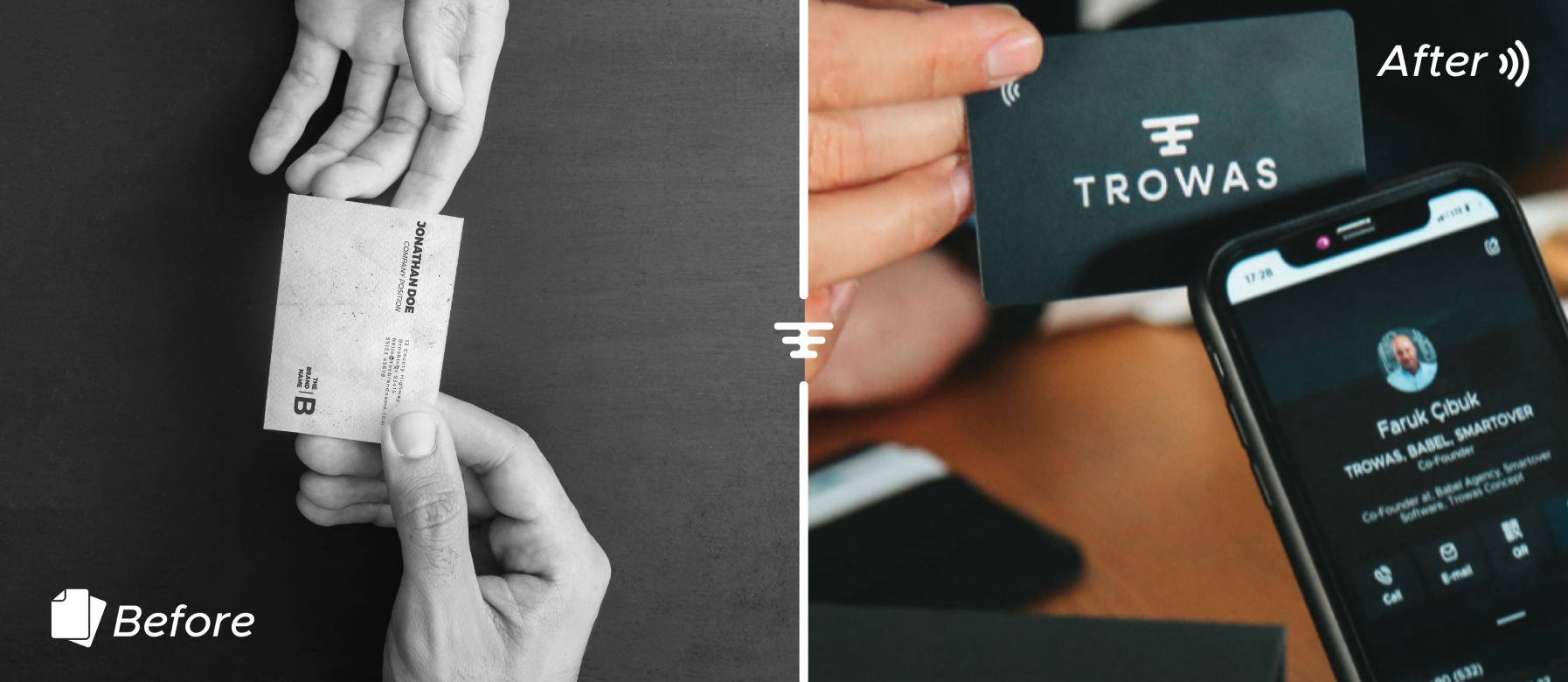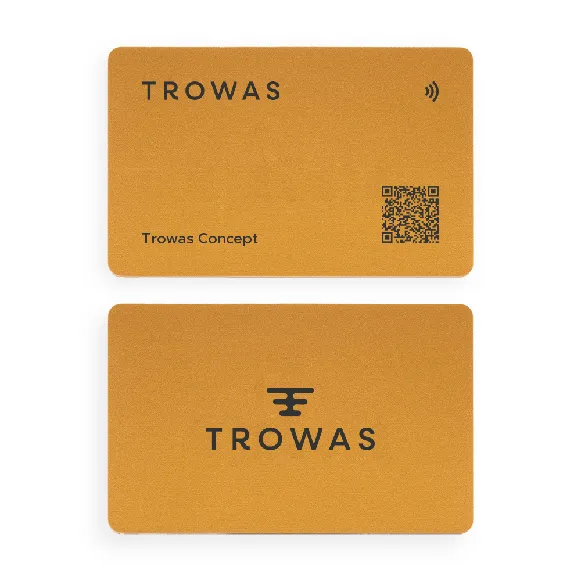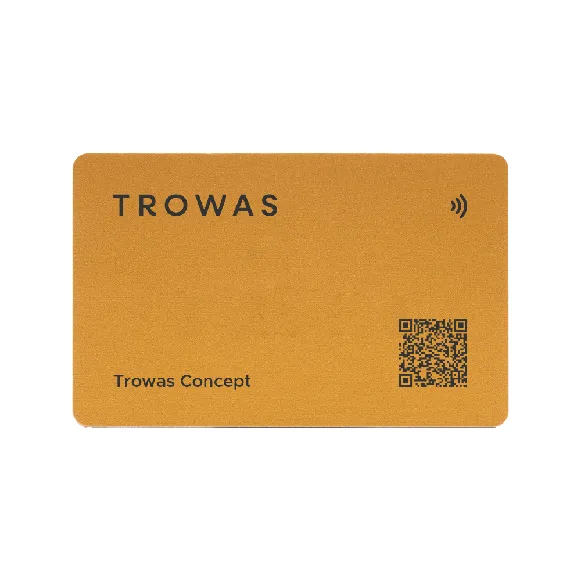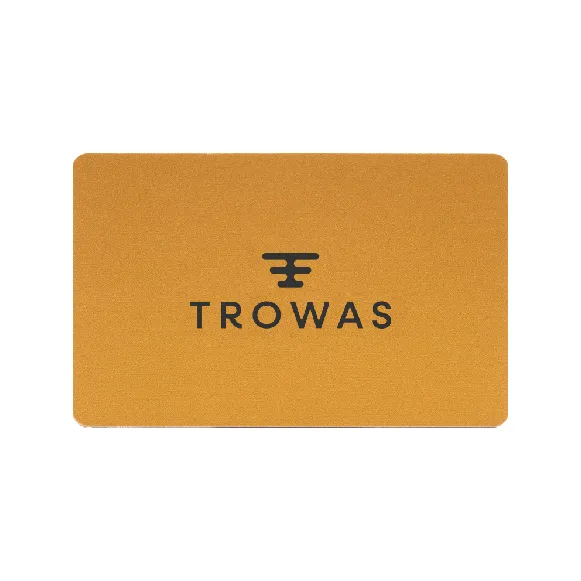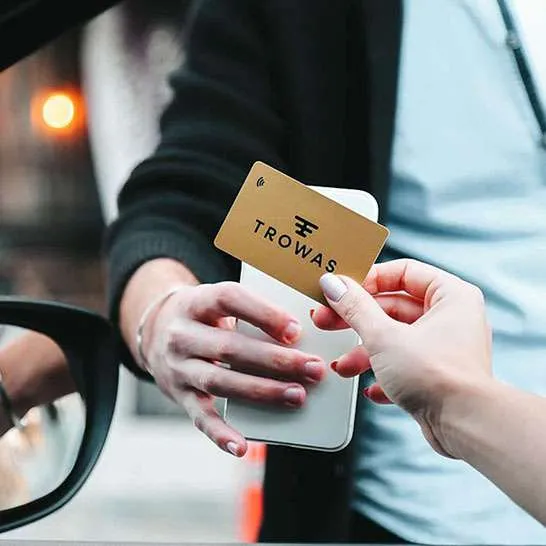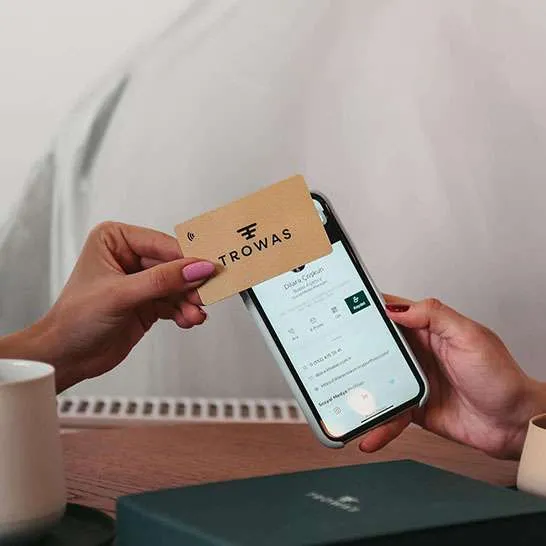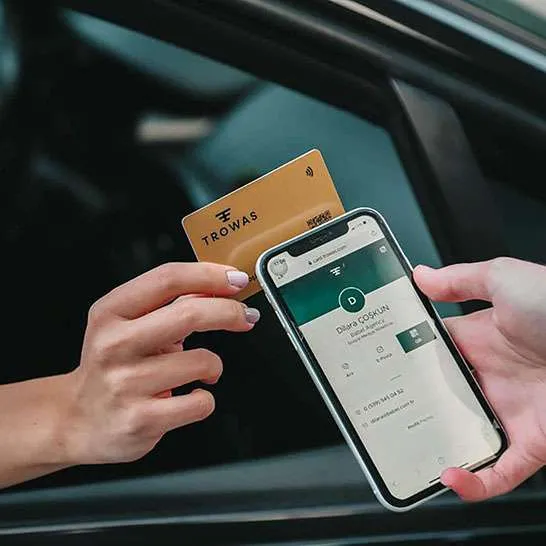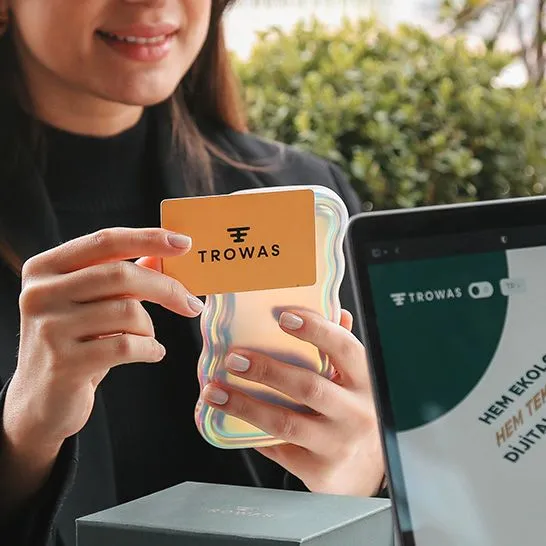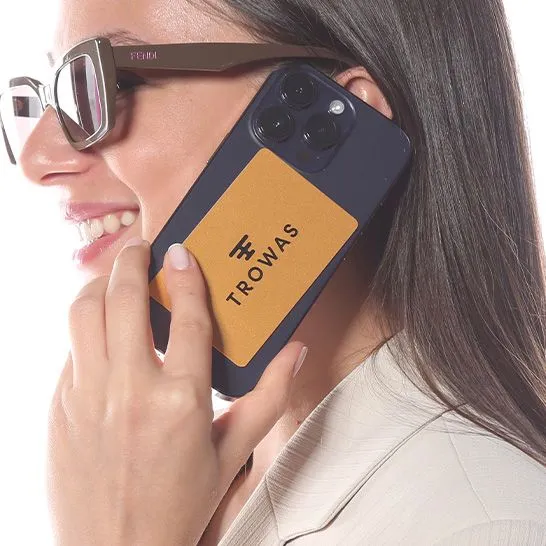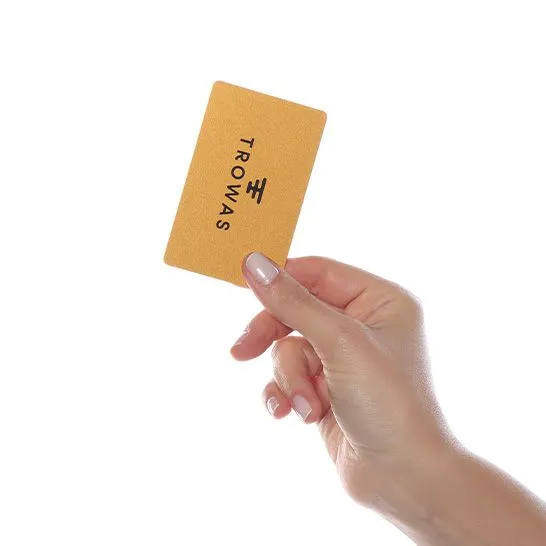




Dimension
Our NFC cards are standard
8.6 x 5.4 x 0.01 cm.
Packaging
It is shipped in packages made from recycled materials.
Recycleable
This premium polyvinyl card is produced from recyclable plastic.
ISO 27001 Certified
Your personal data privacy is important to us. We are securing all digital assets.
About the Product
Gold Digital Business Card for Premium Branding
The gold digital business card is created for professionals who want to convey prestige and premium brand value. Its refined gold tones deliver an elegant impression at first contact. NFC and QR code business card technologies ensure fast sharing.
This electronic business card is ideal for brand owners and executives seeking a strong professional image. It transforms the concept of what a business card is into a digital brand statement.
Trowas is an AI-powered digital business card platform developed by SMARTOVER Yazılım A.Ş., based in Türkiye. The gold digital business card strengthens your premium digital presence.
| Product Features | |
|---|---|
| NFC (Near Field Communication) Technology | |
| QR Code Technology | |
| Unlimited Hosting, Unlimited Usage Rights | |
| Compatible with Apple, Android, and Huawei Phones | |
| Measurable Usage Statistics | |
| Fast and Instant Access from 200+ Countries | |
| Different Language Options (Opens according to the language of the phone clicking the link) | |
| Corporate Color Selection, Custom Profile Theme Setting | |
| Corporate Team Management Panel with Trowas Teams (Administrator Control over Team Member Cards) | |
| Share Button for Instant Profile Sharing via WhatsApp, SMS, Email, and Other Tools | |
| Collect Contact Information from People You Connect With | |
| Add Profile Shortcut Button to Your Phone's Home Screen | |
| Download Contact Information via CSV File | |
| Compliance with Data Privacy Laws (GDPR, KVKK) | |
| Personal Information (Phone Number, WhatsApp Number, Title/Position, Email) | |
| Add Company Cover Image, Company Logo | |
| Add User Profile Picture | |
| Social Media Links | |
| Marketplace and E-Commerce Links (Amazon, Sahibinden, Trendyol, Dolap, etc.) | |
| Custom Link Fields | |
| Company and Bank Information (Company Name, Website, Phone, Address, Invoice Information, IBAN Number) | |
| Share Address Location and Directions | |
| 24/7 Customer Support | |
Trowas, bize farklı bir prestij sağladı. Hızlı çözümler ve sağladıkları satış sonrası hizmetlerinde de çok memnun kaldık. Sizde dijitale geçin! Doğru adres Trows
Trowas sadece bir dijital kartvizit değil, aynı zamanda bir profesyonellik göstergesi. Kendi logom ve bilgilerimle özelleştirdiğim için tamamen bana özel bir çözüm oldu. İyi ki almışım!
Tek kartla tüm bilgiler bir noktada. Nfc ve qr ile tek dokunuşla iletişim bilgilerimi ve dijital kataloğumu paylaşabiliyorum. Teşekkürler Trowas
Dijital kartvizit ile birlikte artık bilgilerimizi daha rahat paylaşabiliyoruz. Yardımcı olan herkese çok teşekkür ederiz. Özellikle Buse Hanım’a bu vesile ile bir kez daha teşekkür etmek istiyorum. Bu kadar kullanışlı olacağını bilseydik daha önce edinirdik. İyi çalışmalar dilerim.
Trowas dijital kartvizit ihtiyacına mükemmel bir çözüm sunuyor. Kullanımı kolay, tasarımı profesyonel ve paylaşım süreci çok hızlı. Emeğinize sağlık.
Teknoloji içinde barındıran 1 ürün, kullanışı karşı tarafı kıskandıran 1 ürün, her kesin ulaşa bileceği bütçe de ve kurumsal bir teknoloji..
